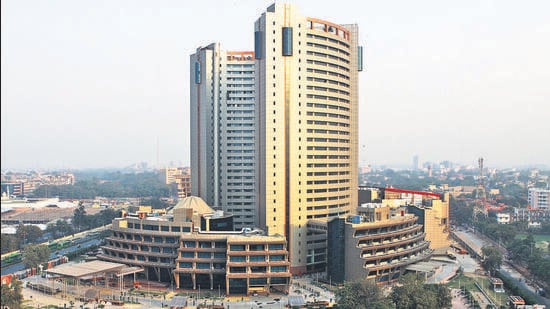Our Terms & Conditions | Our Privacy Policy
Jail for land deal? Archaic provision of Delhi Municipal Act allows it | Latest News Delhi
New Delhi
When established, the MCD was the overarching body for all decisions and penalties. (HT Archive)
Prime Minister Narendra Modi, on Sunday, while inaugurating expressway projects in the national capital, referred to an archaic legal provision in the Delhi Municipal Corporation (DMC) Act that allows for a one-month jail term for sanitation workers who fail to report for work. Officials aware of the matter said that this outdated provision in the DMC Act, 1957, falls under Section 298 and is among many archaic laws that will be repealed.
Some of the archaic provisions include “power to expel lepers and disturbers from markets”, prohibition on “stacking or collecting of wood, dry grass, straw or other inflammable materials”, and “care of naked lights”, among others. The amendments also seek to decriminalise various minor offences, replacing them with higher penalties and fines.
A senior MCD official said that the process to create a model act and update the old provisions has been underway for many years. “Last year too, we had sought inputs from all departments about the DMC Act provisions as per the directions from the department for promotion of industries and other trade (DPIIT). The process is now finally coming to fruition. When the act was made in 1957, the municipality was the single-most powerful body covering all aspects of the city’s life. With formation of Delhi government in 1993 and removal of several departments like water, transport, electricity already, the act has been diluted,” the official said.
The Union government, through the Jan Vishwas Bill 2 (2025), is in the process of amending several such enactments for “decriminalizing and rationalizing offences” and to enhance “trust-based governance for ease of living and doing business.” The “fear of imprisonment for minor offences” is a major factor hampering the “growth of the business ecosystem and individual confidence”, the bill states.
Under the DMC act, 24 sets of broad amendments covering issues, such as illegal construction of buildings, stacking of inflammable materials, care of naked lights to power to expel “lepers and disturbers” from markets are proposed to be amended. Several sections of the act are proposed to be completely omitted, while in other cases, decriminalisation of offences, simplification and reforms are being proposed. Similarly, 47 amendments are also in the New Delhi Municipal Council Act,1994.
Six DMC Act sections that are proposed to be completely omitted are sections 310, 400, 401, 409, 410 and 414. Sub-sections are proposed to be removed in eight instances.
For instance, Section 310 states that the commissioner has the power to “allow any building to be set forward for the purpose of improving the regular line of a public street or may order reconstruction in this regard”, while Section 400 regulates stacking or collecting of wood, dry grass, straw or other inflammable materials, or the placing of mats or thatched huts for the prevention of danger to life or property.
“Many of these provisions are no longer useful or they are dealt with by other laws which were enacted later,” a second MCD official said.
Another key thrust is to ensure that minor offences are decriminalised, replaced with a warning or penalty. Under the existing act, offences which can lead to imprisonment include failure to comply with requisition to round off buildings at corners of streets, failure to carry out alterations in buildings as per MCD’s directions, and failure to give notice of intention to erect a building, among others. The maximum punishment, of three-year rigorous imprisonment, under the 12th Schedule is under Section 313 for utilising, selling, or laying out a private street without the orders of the Standing Committee.
“If such provisions are actually put in force, a large chunk of the population can be put in jail. These will be converted into stiff penalties and civil cases rather than criminal offences,” the official said.
Some unique offences listed in the bill include tethering of animals and milking of cattle in public places, use of inflammable materials without permission, and keeping rubbish for more than 24 hours.
Images are for reference only.Images and contents gathered automatic from google or 3rd party sources.All rights on the images and contents are with their legal original owners.



Comments are closed.